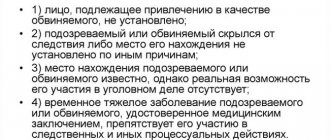Good reasons
Before scheduled proceedings in court, judges inform all participants in the process of the date, time, and address of the meeting. All persons participating in the meeting receive notice of a future hearing. If you have been served with such a notice, you must either come to the courtroom or give reasons why you cannot attend.
Free legal consultation
+8 800 100-61-94
Any reason must be confirmed in writing. The best option is to notify the judge in advance that you will not be able to make it on time. Only valid reasons must be reported. Practice has shown that the explanation “due to family circumstances” is recognized by the court as a valid reason.
If it was not possible to notify the judge, then valid reasons for absence from the trial are:
- illness of a citizen, illness of a person for whom he must provide care;
- the need to attend the funeral of a relative;
- business trip;
- an accident or catastrophe that is an insurmountable obstacle;
- notice of the trial was delivered to the citizen late;
- absence from Russia (vacation is not considered a valid reason).
Reference! All reasons are reviewed by the judge. If he considers the reason for failure to appear to be disrespectful, a fine may be imposed on the citizen. He may be forcibly brought to the court hearing.
There are often reasons that citizens consider valid, but in fact are not. Such reasons include:
- lack of funds for travel to the court;
- forgetfulness, due to which a person missed a court hearing;
- rush job.
Work is not considered a valid excuse for missing a trial. Any employer is obliged to give the employee the opportunity to appear at the meeting. The judge issues a summons to the citizen indicating the length of time during which the person was in court.
The citizen provides this summons to his employer. To obtain this paper, you must contact the secretary of the court session. Issuing such a subpoena is a right, not an obligation, of the court.
It is also useful to read: Judicial debates
Notification of inability to attend a meeting
An application for inability to attend court proceedings is made in any form:
- name and address of the judicial institution;
- last name, first name, patronymic, contact details of the citizen who submits the application, as well as his role in the judicial process;
- a request (postponement of the court process for a certain period) with a description of the reason (for example, illness);
- date of registration of the application, signature of the citizen who submits the application;
- medical certificates and other papers that confirm the existence of a valid reason for postponing the trial.
Attention! The application is submitted to the judge who is to conduct the scheduled hearing.
What happens if you don’t show up for a meeting without a good reason?
In order for a judge to make an objective decision on a particular proceeding, all participants in the proceedings must be present at the hearing.
Any procedural code has rules by which participants in legal proceedings are notified of a meeting. Each party to the dispute must be given proper notice. Criminal cases can be classified as a separate category.
During proceedings in such cases, all participants in the process are divided into:
- witnesses;
- the accused;
- victims.
For each category of participants in criminal trials, separate sanctions are provided for failure to appear in court.
For a witness in a criminal case
In accordance with Part 1 of Article 56 of the Code of Criminal Procedure of Russia, a witness in a criminal case is considered a citizen who has information about circumstances important to the investigation.
The Russian legislative framework provides for the following methods of notifying a witness about a trial:
- agenda;
- telephone message;
- telegram;
- Fax;
- SMS notification.
The witness must come to the court hearing on time. If he does not appear at the trial, he may be brought to court (part 7 of article 56 of the Code of Criminal Procedure of Russia). Arrest is the forced delivery of a citizen to a judicial institution, which is carried out by bailiffs.
The drive cannot be applied to people under 14 years of age, pregnant women, as well as citizens who, due to health problems, cannot leave their place of residence (the disease must be certified by a physician).
Important! The judge individually determines how valid the reason is for the witness not to appear in court. If there are no valid reasons, a fine of up to 2.5 thousand rubles is imposed on the witness. Also, a witness may be prosecuted if he avoids appearing in court in order not to testify.
For the accused
The Russian Code of Criminal Procedure stipulates that court hearings in criminal proceedings are held with the participation of the accused. If he fails to appear in court without good reason, he may be subject to arrest.
The defendant may also have their preventive measure changed. A court hearing without the participation of the accused is allowed if the latter is involved in a case of a criminal act of mild or moderate gravity and files a corresponding petition.
In some situations, a hearing in court on a criminal trial regarding a grave and especially grave criminal act may be held without the accused. This is allowed if the defendant stays outside the borders of Russia and (or) avoids appearing in court.
In this case, the accused should not be prosecuted in the territory of another country in the relevant criminal case.
For the victim
In accordance with Article 249 of the Code of Criminal Procedure of Russia, the trial in court takes place in the presence of the victim and (or) his authorized representative, unless otherwise provided for in parts 2 and 3 of this article. If the victim does not appear at the court hearing, the case may be considered without him (except for situations where the presence of the victim is recognized by the judge as mandatory).
In criminal cases of private prosecution, the absence of the victim without good reason leads to the closure of the criminal case on the grounds provided for in paragraph 2 of part 1 of Article 24 of the Code of Criminal Procedure of the Russian Federation.
Responsibilities of the victim
These include the citizen’s obligations to cooperate with law enforcement agencies, as well as to appear at the department at the appointed time to give evidence. He must also provide evidence and not hide it.
Also read: Bringing sane persons to criminal liability: who are sane persons
The duties also include that a citizen should not give false information about the case , about which he is warned in advance. However, it is not the responsibility of the victim to testify against himself or his relatives. This is also provided for in Art. 51 of the Constitution of the Russian Federation.
He is also obliged to keep secret information that is relevant to the case. If he begins to disclose it, he will be held liable under Art. 310 of the Criminal Code of the Russian Federation.
Liability if a civil case is being considered
According to Article 250 of the Code of Criminal Procedure of Russia, the plaintiff, defendant and (or) their proxies take part in a court hearing in a civil case.
A judge has the right to consider a claim without a plaintiff if:
- the plaintiff or his authorized representative filed a corresponding petition;
- the claim was supported by an employee of the prosecutor's office;
- the defendant agrees to the statement of claim that was filed against him.
In other situations, if the plaintiff or his authorized representative fails to appear, the judge has the right to leave the statement of claim without consideration. In this case, the plaintiff has the opportunity to re-file the claim in civil proceedings.
Separately, divorce proceedings should be noted. If the defendant does not come to the divorce hearing, the judge takes into account the norms of the RF IC, namely Article 22. According to the norms of this article, the annulment of a marriage union through the court is carried out if the judge determines that further life together of the spouses and preservation of the family is impossible.
If the husband/wife does not agree to the divorce, the judge has the right to take measures to reconcile the spouses and postpone the court hearing. The husband and wife are given a period not exceeding 90 days for reconciliation. A divorce is issued if measures to reconcile the husband and wife have not brought results and the spouses want to dissolve the marriage.
It is also useful to read: Stages of the legal process
The employee received a summons
First, let's figure out what cases and where an employee can be summoned. These can be civil, administrative and criminal cases. All of them are considered by courts of general jurisdiction. Arbitration courts hear disputes in the field of business and other economic activities.
There are also tax offenses that are considered by tax inspectorates. Accordingly, the employee may be summoned to a court of general jurisdiction or an arbitration court, or the tax office.
In addition, he can be called by the bodies of inquiry, investigative bodies and the prosecutor's office. It should be noted here: in order to qualify such calls as the performance of public duties, the employee must have a certain status. Thus, guided by the norms of the Civil Procedure Code, when considering civil cases, an employee can act as:
– parties (plaintiff or defendant);
– witness;
– juror;
– specialist, expert, translator.
In accordance with the Code of Administrative Procedure, when considering administrative cases, an employee may be:
– a party (administrative plaintiff or administrative defendant);
– witness;
– specialist, expert, translator.
Finally, when considering criminal cases, by virtue of the provisions of the Code of Criminal Procedure, an employee may be:
– the victim (his legal representative);
– the accused;
– a civil plaintiff;
– witness;
- attesting witness;
– specialist, expert, translator.
An employee can be summoned to an arbitration court as a witness, specialist, expert, translator, as well as an arbitration assessor.
However, not all of these statuses give the employee the right to receive guarantees in accordance with Art. 170 Labor Code of the Russian Federation . In particular, participation in legal proceedings as a plaintiff or defendant and, of course, as an accused is not considered to be the performance of public duties by an employee. For everyone else, such an obligation is established regardless of what process (civil, administrative or criminal) the proceedings take place.
Guided by the provisions of the Code of Civil Procedure of the Russian Federation, the Arbitration Procedure Code of the Russian Federation, the Code of Administrative Offenses of the Russian Federation, the Tax Code of the Russian Federation, the Code of Criminal Procedure of the Russian Federation and other federal laws and regulations, the employee performs state duties if he is summoned to court, the tax inspectorate, inquiry bodies, investigative bodies and the prosecutor's office as a witness or specialist , expert, translator, victim (his legal representative), attesting witness, and also if he serves as a juror or arbitrator.
For your information
The bodies of inquiry include internal affairs bodies, police departments (divisions, divisions, points), FSSP bodies, fire inspection bodies ( Article 40 of the Code of Criminal Procedure of the Russian Federation ).
What are the consequences of absence from administrative work?
The judge postpones the hearing on the administrative case in situations where the following does not appear in the courtroom:
- any of the citizens who participate in the proceeding, and it must be unknown whether they received notice of the day and place of the proceeding;
- a duly notified offender who does not have state or other public powers and must be present at the proceedings in the courtroom;
- an authorized representative of a citizen who participates in legal proceedings.
Attention! If citizens who must necessarily participate in the hearing do not appear in the courtroom, the judge imposes a fine on them. If the offender fails to appear again, the offender may be subject to arrest.
If all participants in the proceedings who were duly notified of the date and place of the hearing did not appear at the court hearing, the judge shall consider the administrative case in a simplified manner.
The maximum fines for failure to appear in court in an administrative case are as follows:
- individual – 5000 rub.;
- official – 30,000;
- civil servant, municipal employee – 10,000;
- legal entity – 50,000;
- local government body, other bodies and organizations with state or other public powers – 80,000;
- government agency, other government agency – 100,000.
How to notify the court
If you really need to participate in the process, but it is not possible, then you should notify the court of your absence. You can do this in two ways:
- submit a petition to have the case considered without you;
- request that the meeting be adjourned.
The petition is made in writing. It is sent by email to the court or delivered in person to the court. When sending by email, it is recommended to call and check whether your application has been received.
If a citizen fails to appear at a hearing twice or more, the judge may consider the proceedings in your absence, questioning the validity of the absence. This is usually how cases of divorce or administrative violations are resolved.
With criminal trials the situation is much more complicated. Here, too, cases are sometimes considered in the absence of the defendant, but more compelling reasons are needed for this.
In writ proceedings, debtors are not notified at all, and all orders are issued without them. This is completely legal. Therefore, there is no need to swear when your account is suddenly frozen. The court orders such debts to be collected without the participation of the parties.








